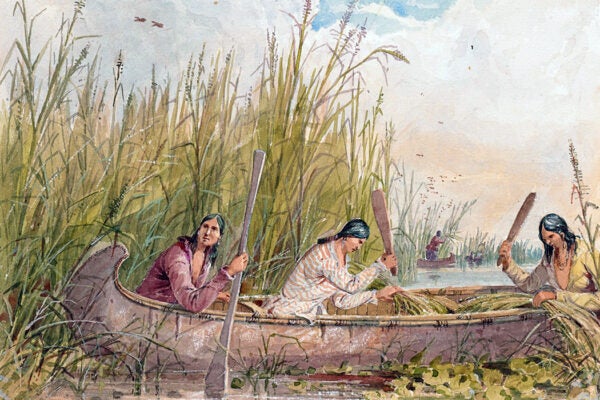What is the point of menopause?
We can all attest to emotional and spiritual value of long life, and the ways in which wise older women have contributed to the world. But evolutionarily speaking, why do female humans go through menopause and then live for many more decades? Only three known species— humans, killer whales, and short-finned pilot whales—live for long beyond their reproductive years. According to centuries of evolutionary thought, organisms seek to maximize their fitness, i.e. maximize the genes they pass on to the next generation. Theoretically, the goal should be to produce as many offspring as possible, and so keep on reproducing until the bitter end. Instead, human females typically live for decades after losing the ability to reproduce late in middle age. There must be some evolutionary benefit…right?
The only way menopause makes biological sense is if having decades of post-reproductive life enhances a female’s fitness more than simply having more offspring (males of all three menopausal species have much shorter lifespans, so this argument only applies to females of those species).
There are a few hypotheses. Human infants are completely dependent on their mothers for years, but the risk of death in childbirth increases radically with increasing maternal age (excluding sophisticated medical care). In this analysis, ceasing further reproduction increases the likelihood that a mother will survive to nurture her last offspring to adulthood. However, studies have shown that infants are only rarely orphaned due to maternal mortality.

Another option is the grandmother hypothesis, a form of kin-selection. Grandmothers often play an important role in raising their grandchildren and in the survival of groups. Grandparents are an extra pair of hands that can babysit, guard, prepare food, or carry children during migrations, or numerous other vital tasks without the responsibility for their own offspring. Their own grandchildren, and thus their own fitness, benefit. One problem with this hypothesis is that grandmothers could theoretically increase their fitness simply through their own reproduction, rather than expending energy on their grandchildren. Despite numerous attempts, researchers have not found conclusive evidence that the fitness benefits of grandchildren actually exceed the fitness opportunities lost when grandmothers forsake their own reproduction.
There is a third possibility: mothers and daughters in reproductive conflict. Menopause typically occurs sometime around the age where an adult daughter is entering her reproductive years. Should the older female continue to reproduce, her offspring will compete directly with her own grandchildren if they remain in geographic proximity. For various genetic reasons, the offspring of the younger females usually come out ahead. If her offspring are disadvantaged anyway, then an older female maximizes her fitness by ceasing to reproduce and instead devoting energy to the benefit of her grandchildren. It’s a hybrid hypothesis, consistent with the physiology and social structure of all three menopausal species.
Weekly Newsletter
But as for the evolutionary origin of menopause, there is not yet a consensus. Further tests, or the discovery of menopause in additional species, may help shed some light on this. In humans, medical advances in fertility and maternal/natal care are complicating the selective pressures on fitness, and in any event human reproductive choices in the modern age are driven by personal priorities and desires rather than evolutionary pressures. Most women are more concerned about the experience of menopause, rather than its evolutionary history. Going forward, the best studies about the evolution of menopause will probably come from whales. A recent study of killer whales leans toward the reproductive conflict hypothesis, demonstrating a possible path forward.







